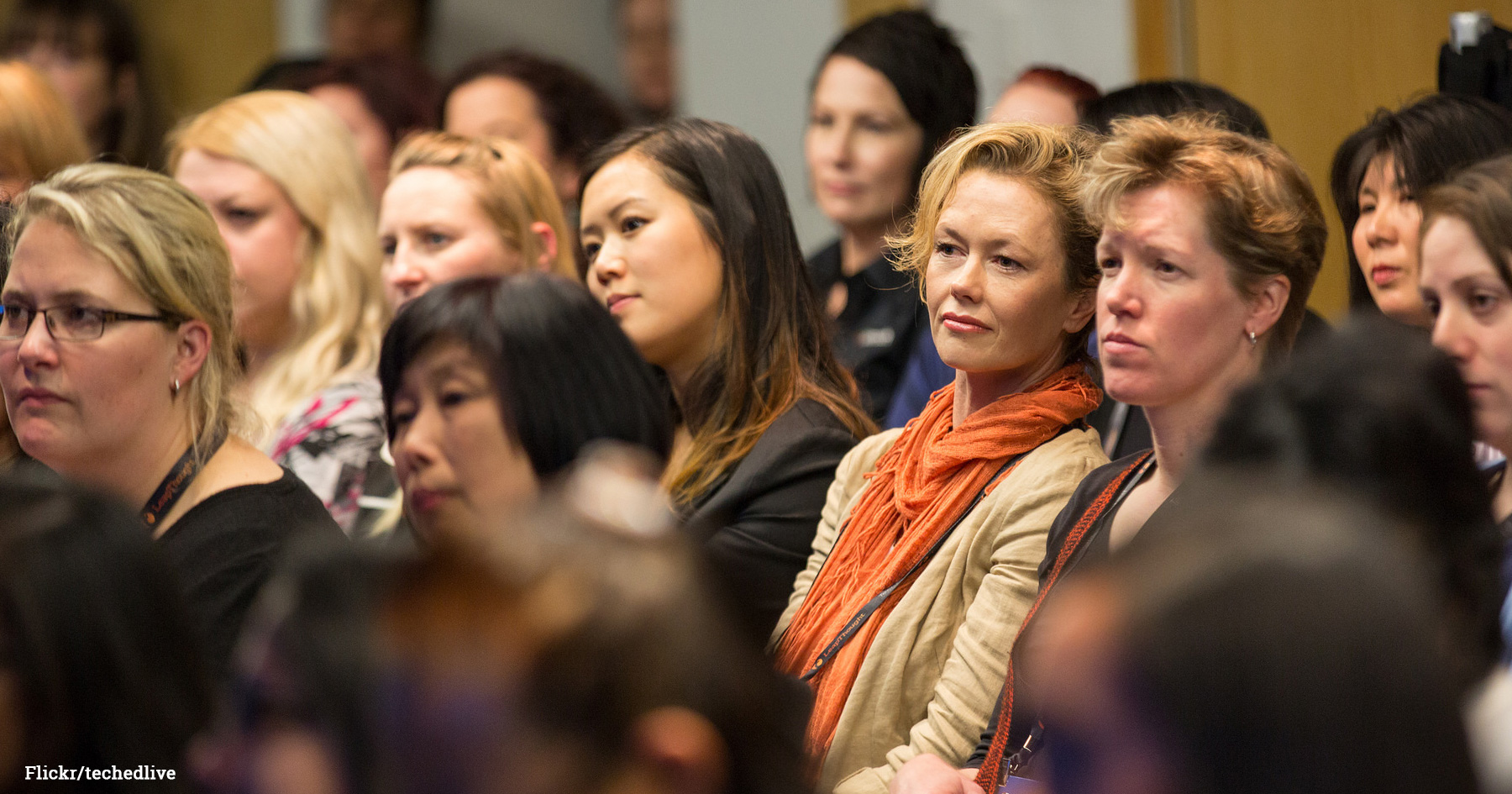The Wall Street Journal's Tips for Fighting Sexism in Tech Are Terrible

By:
A Wall Street Journal op-ed advising women on how to overcome sexism in the technology industry has garnered quite a bit of outrage among its intended audience: women.
The op-ed was penned by John Greathouse, who is a partner at Rincon Venture Partners venture capital firm, a faculty member at University of California, Santa Barbara, a former "serial entrepreneur," and a man.
"Professional women, are you properly curating your online first impression?" he asks.
Greathouse asserts, "women in today’s tech world should create an online presence that obscures their gender."
 Flickr/techedlive - flic.kr
Flickr/techedlive - flic.kr
He claims that while he believes it "a shame" that tech investors are unfairly biased towards women, women in tech are best advised to use their initials online and not show photos of themselves in LinkedIn profiles.
As women were quick to point out in social media posts, blog posts, and stories in response to the piece, Greathouse's argument doesn't suggest that men should work to fight systemic sexism in the industry, but that women should put in extra effort in order to "obscure" their gender online.
On Select All, reporter Madison Malone Kircher dissects the WSJ piece, in which Greathouse also cites research on the comparative unlikability of female names.
From Select All:
"It’s essentially saying that if people are biased against you, it’s your problem, not theirs. It you want to be liked and to get hired for the job you probably deserve anyway because you are smart and well-trained, just go change everything about yourself."
Kircher writes:
"There’s some hell-world logic by which Greathouse’s advice makes sense — if you, individually, can’t fix the problem of your potential employers’ bias, maybe you need to work within it. (What a horrible world where “hide who you are” is even briefly worth consideration as life advice!) The problem is that Greathouse should be directing his advice elsewhere. The market is short 600,000 engineers, and yet women are leaving the tech industry 'in droves.' Talent, ideas, products, opportunities, and resources are lost — apparently because employers can’t see beyond the names on a résumé and investors go insane at the sound of a woman’s voice."
Greathouse is onto one thing: female-helmed tech start-ups don't get equal venture capital funding to their male counterparts.
As the Harvard Business Review reported in April, "in venture capital-financed, high-growth technology startups, only 9 percent of entrepreneurs are women."
But the larger problem with inequality in tech goes beyond the "unconscious bias" name-checked by Greathouse.
From the Harvard Business Review:
"With startups financed by all-male VCs, there is a whopping 25 percentage-point difference in the exits of female-led and male-led startups. Yet when startups are financed by VCs with female partners, that difference disappears. There is no meaningful difference in the success rates of female- and male-led startups when they’re financed by VCs with women partners."
So part of the reason female entrepreneurs aren't always evaluated fairly has to do with the fact that women are also gravely underrepresented at venture capital firms. According to Fortune, less than 6 percent of decision makers at U.S. VC firms are female.
In a Thursday tweet, Greathouse apologized for his piece.
The Journal also published responses from readers.
You can read the full op-ed on the Wall Street Journal.
